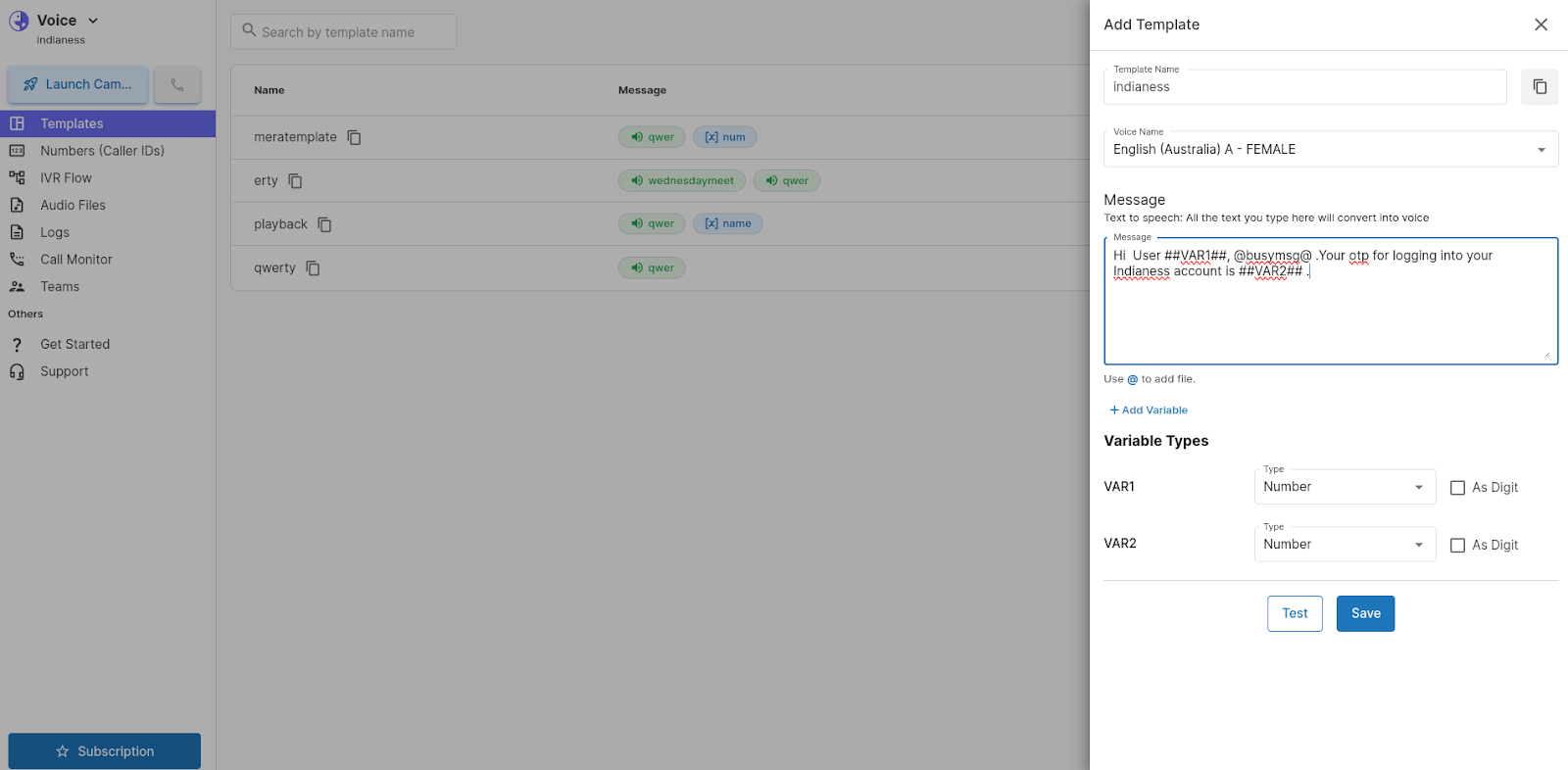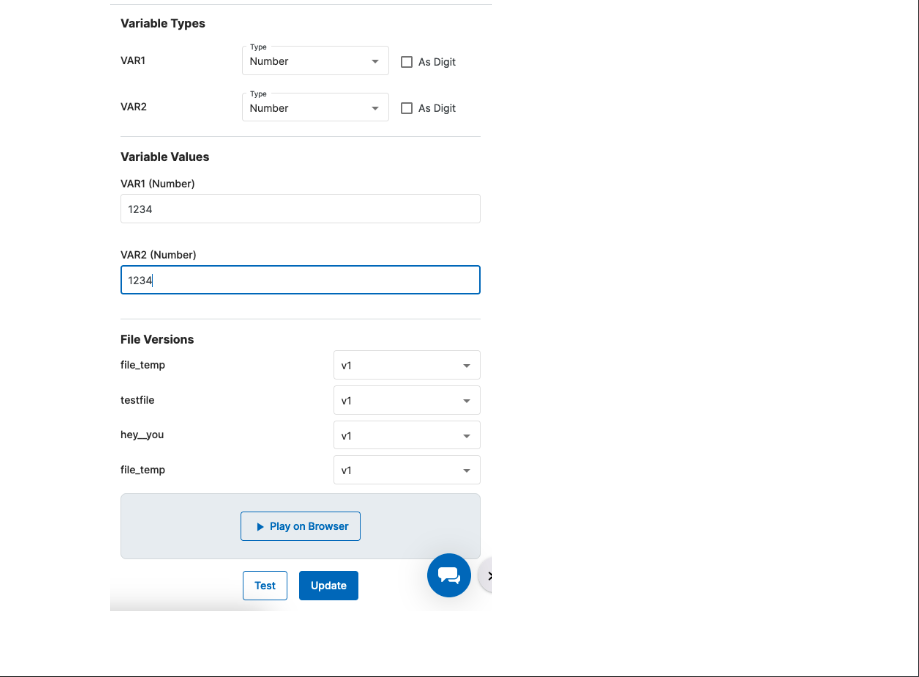Voice Redesign Template Change
Voice Redesign Template Changes:
1. Custom Content Inclusion:
- Users can now add custom text, variables, and existing files directly into
the template.
- Text content (if any) is internally transformed into a file format.
- If the text content comprises at least 8 unique characters, the first 8
unique characters are used as the text_file_name but if the text content
contains fewer than 8 unique characters, an additional 8-character slag is
appended.
- In the UI,files highlighted in green indicate an active file, while file with
red indicates the file is inactive. Additionally, to use files in campaign or
template calls, file approval needs to be done.


2. Custom Voice Selection:
- User have the ability to specify a custom voice_name for each
template.
- The playback of variables and text within the template will be according
to chosen voice_name.
3. Support to play Active and Inactive File in template playback :
- User can add both active and inactive files to the template, but when you
make a template call if any inactive file exists in the template then that file
will be skipped to play in a call.
- During template playback, users have the option to select from multiple
versions of a file. However, during a campaign or template call, the active
version of the file will be played.

Feature: Show/Play Used Variables in Template
The “Show/Play Used Variables in Template” feature allows users to view or play the variables used within a voice template whenever it is triggered — either through a campaign or a single API call.
This helps users verify which variables were applied in real time and ensures transparency in template execution.
How It Works
1. Template Execution in Campaigns & APIs
When a template is executed via a campaign or API, users can play the recording from the logs to check which variable values were used in that call.
2. IVR (Interactive Voice Response) Usage
In the Number Input Node, the captured variable values are displayed in the IVR input field (in text format).
In the Playback Node, the same variable values are also displayed in text format within the IVR input field.The “Show/Play Used Variables in Template” feature allows users to view or play the variables used within a voice template whenever it is triggered — either through a campaign or a single API call.
This helps users verify which variables were applied in real time and ensures transparency in template execution.
How It Works
1. Template Execution in Campaigns & APIs
When a template is executed via a campaign or API, users can play the recording from the logs to check which variable values were used in that call.
2. IVR (Interactive Voice Response) Usage
In the Number Input Node, the captured variable values are displayed in the IVR input field (in text format).
In the Playback Node, the same variable values are also displayed in text format within the IVR input field.
1. Playback Node
If the node plays a template with variables, the log will show:
Playback node executed (played a template with variables: VAR1:HELLO, VAR2=123456) ->

If no variables are used in the template:
Playback node executed (played a message) ->
2. Number Input Node
If the node plays a template with variables and the user enters input:
Number Input node executed (played a template with variables: VAR1:HELLO, VAR2:500), user entered: 1 ->
If templates are used:
Number Input node executed, user entered: 1 ->

1663832908583941.png)